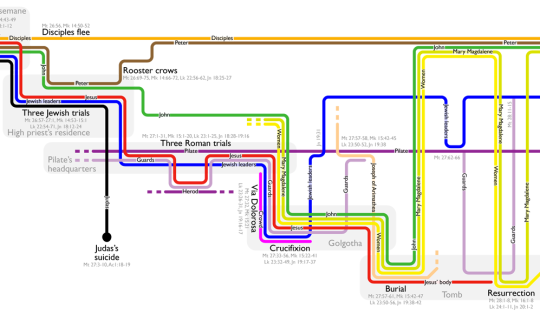Here some helpful tools for tracking the words and works of Holy Week. Spanning from Palm Sunday to Resurrection Sunday (Easter), we see the life of Jesus on display in and around Jerusalem. The plot thickens as His life mission will climax in his agonizing death, leading to His triumphant resurrection. He truly laid death in His grave, conquering all His enemies (sin, death, and Satan). Our hope is in the One who for love gave up His life so we may live. The innocent died in place of the guilty, the just for the unjust, in order to bring us to God (1 Pet. 3:18).
Let us remember the words of our Lord:
“This is why the Father loves me: because I freely lay down my life. And so I am free to take it up again. No one takes it from me. I lay it down of my own free will. I have the right to lay it down; I also have the right to take it up again. I received this authority personally from my Father.”
—John 10:17-18, The Message
See It
Visual graphic of the events of Holy Week on a timeline (via BibleGateway.com). It is a visualization of the ‘Who,’ ‘What,’ and ‘Where’ of Holy Week.
For example, to below is a closeup of the chart showing Jesus in Gethsemane and his betrayal by Judas. First Jesus draws aside Peter, James, and John and entreats them to pray while Jesus also prays. Then Judas and a crowd arrive; Judas betrays Judas with a kiss, Jesus is arrested, and the disciples flee, while Peter and John follow at a distance. The visualization shows you the main actors in the story and provides Bible references for you to read the story yourself.


[click image to enlarge]
Read It
Justin Taylor has attempted harmony/chronology of the words and actions of Jesus in the final week of his pre-resurrection life (with help from the ESV Study Bible). Here are links, organized by day:
Download all of the Scriptures above compiled into one PDF document: Holy Week Timeline (37 pages).

Also, see the geography and harmony of Holy Week re-enacted in Google Earth.
Let this week be full of contemplation, and consider the great cost of God the Father crushing God the Son, to reconcile us and the world to Himself.










